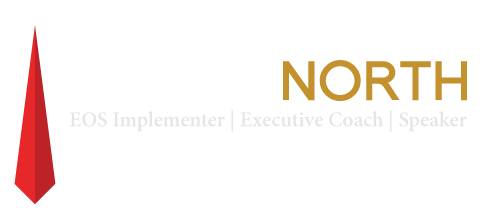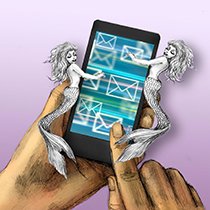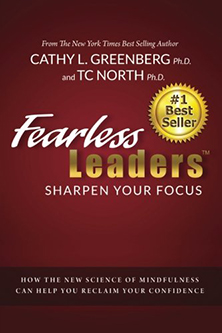Are you addicted to checking your email? The successful entrepreneur resits email seduction.
Email addiction isn’t listed as an official medical addiction (at least not yet), but it’s a term I’m seeing more and more in business articles. The reason? Emails are literally biochemically seductive! The successful entrepreneur must be able to resist.
You get a quick burst of dopamine (the happiness neurotransmitter that elevates your mood) when you open one. The siren song of email affects your brain, much like the melodic, sexually seductive sound that drove Odysseus temporarily mad in Homer’s The Odyssey.
The successful entrepreneur share an almost obsessive focus on two things: 1) creating a high-performance culture and 2) being known for one product, service or something that differentiates their company in its market. Getting sucked into email is often a distraction from the things the successful entrepreneurs, or any other professional for that matter, need to focus on.
Read more on the value of obsessive focus here High Performance Organizations and Entrepreneurs Know This
When you know you have unread emails, they tend to scream, “Read me! Read me!” — first softly, and then with increasing urgency — until you read them. Most of us can’t resist the lure of our email. We interrupt what we’re doing, lose focus, read our email, get our quick dopamine hit and feel better.
Want to know if you have an email addiction? Take the email seduction quiz:
According to the American Psychiatric Association (DSM-IV) an addiction must meet at least three of the following criteria. I have replaced the words alcohol, drugs and other related words with the word email, or similar words, in the description of the seven symptoms of addiction. Answer yes or no to the following:
- Significant time or energy spent. Have you spent a significant amount of time emailing? Have you ever concealed or minimized your use? Have you ever emailed during times you shouldn’t?
- Withdrawal. Have you experienced physical or emotional withdrawal when you have been off email for extended periods, including anxiety, irritability, shakes or sweats?
- Limited control. Do you sometimes email more than you would like? Do you sometimes get lost in email or use it as an escape?
- Negative consequences. Have you continued to email even though there have been negative consequences to your, health, job, or family?
- Neglected or postponed activities. Have you ever put off or reduced social, recreational, work, or household activities because of emailing?
- Tolerance. Do you find that you are spending more and more time emailing?
- Desire to cut down. Have you thought about cutting down or controlling your use? Have you ever made unsuccessful attempts to cut down or control your use?
Emails can be seductive and addictive because answering them gives you a sense of accomplishment, and the quick achievement gives you a brief mood-enhancing dopamine fix.
Odysseus found the Sirens so alluring that he had to be tied to a pole to resist temptation and not run his boat onto the rocks. Staying mindful that email is truly biologically seductive, turning it off when working on other things and choosing when to engage with it, will make you more productive and might help you not to run aground.
Becoming a successful entrepreneur, leader, sales rep or professional requires a healthy, obsessive focus on what’s important.
What will you do to avoid email seduction?
Check out this article to learn more about the value of obsessive focus.


